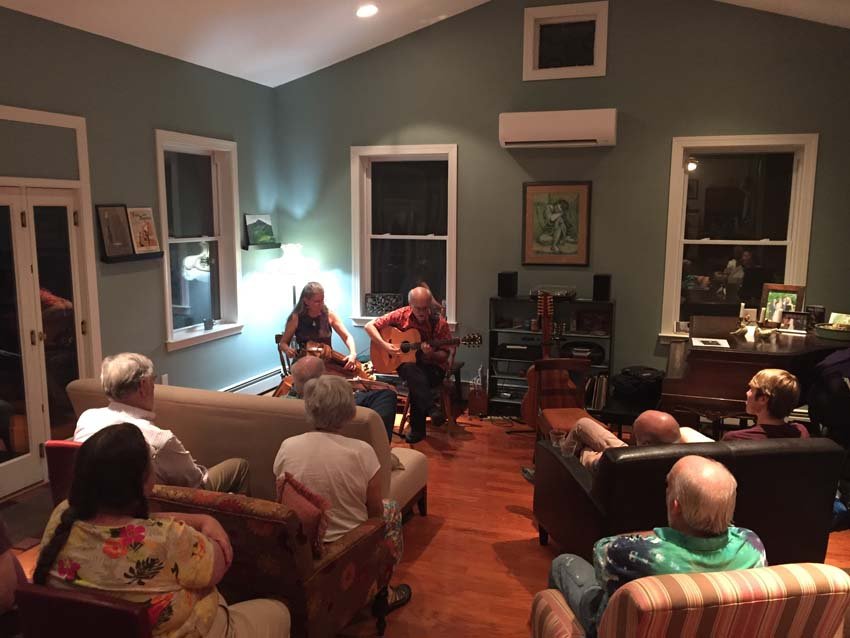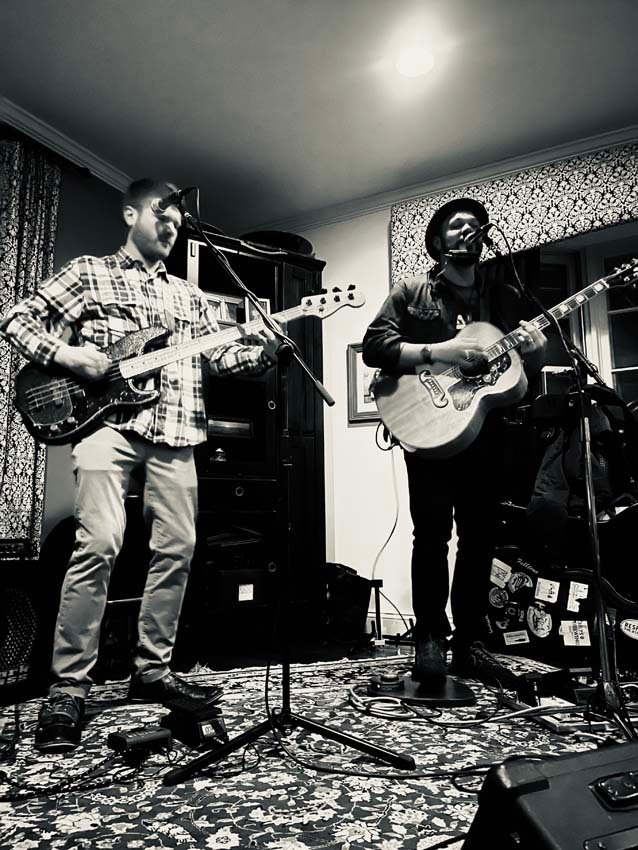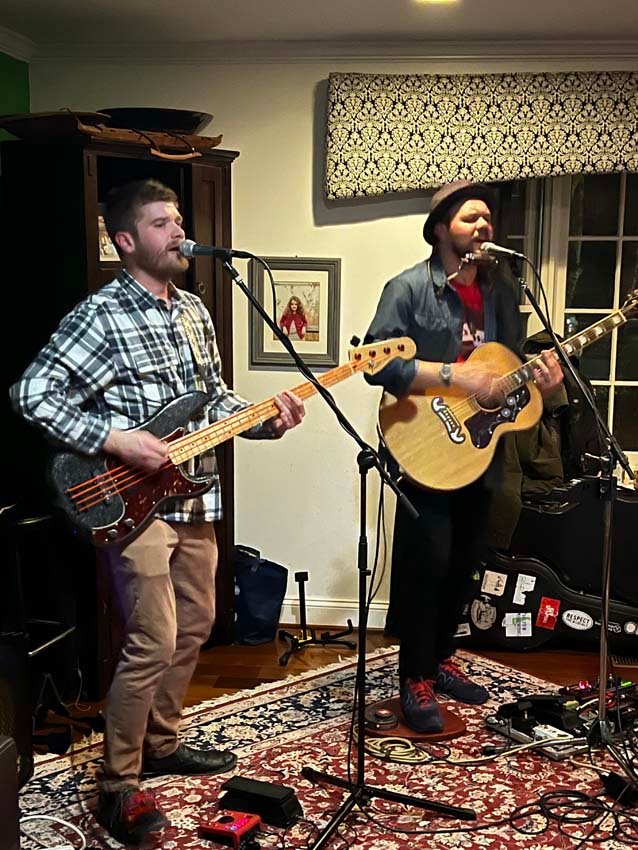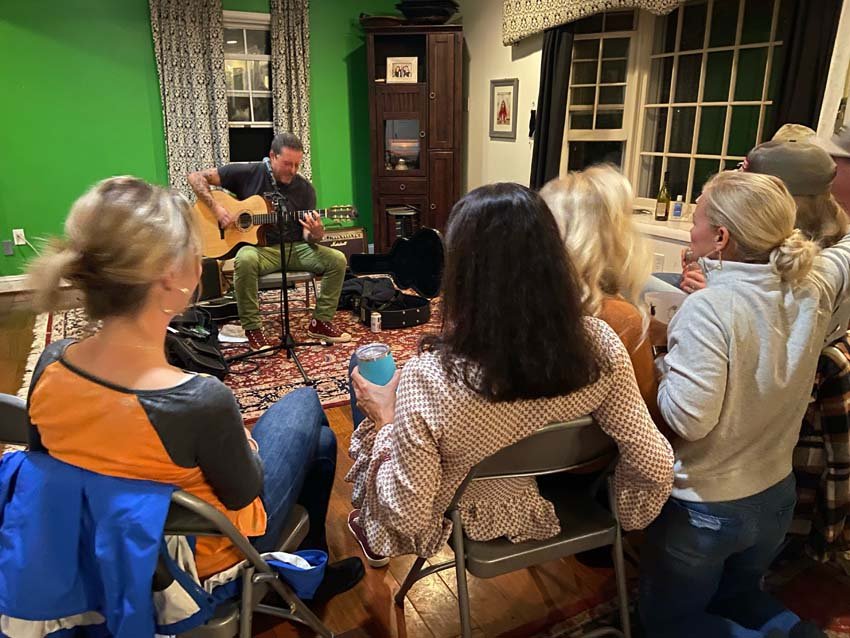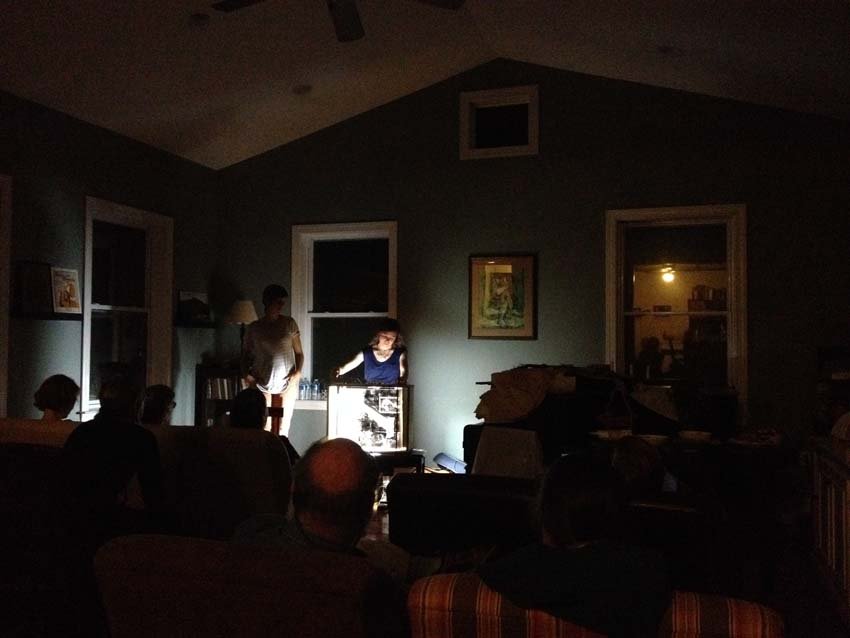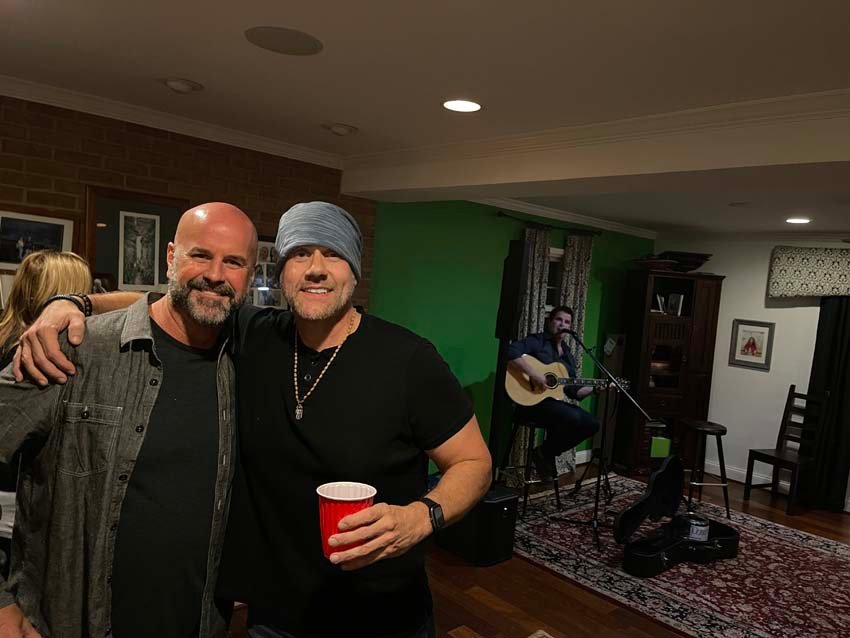+ By Dylan Roche
Like every music artist, every house concert is different. But those who host live music in their private homes or backyards—an activity that is particularly popular in Annapolis with its abundance of bands, singers, and songwriters—have one thing in common. “We love live music,” says Michele Callaghan, who, along with her husband, Dennis, has hosted house concerts for the better part of 15 years. They sometimes have as many as 25 or 30 guests inside their home to hear artists play. “It’s a fabulous experience to have live musicians in your own home and be able to share that with other people.”
The Callaghans started hosting house concerts in the mid-2000s, after having an addition built onto their home. With its excellent acoustics and space to accommodate a small crowd, the room seemed like the perfect listening spot. This organically led to a tradition of opening their home to fellow music lovers, inviting artists to play, and hosting a welcoming get-together with wine, cheese, baked goods, and coffee. Over the years, they’ve hosted such acoustic talents as Pint and Dale, Tim Eriksen, Elizabeth LaPrelle, and the Blue Moon Cowgirls.
Artists or bands play a set, then break for conversation and refreshments with the guests before playing a second set. “It’s a very intimate environment to hear live music, and it’s a great opportunity for us and for the people coming to see the music to get to know the players up close and personal,” says Dennis. “There’s plenty of time for them to talk to the musicians.”
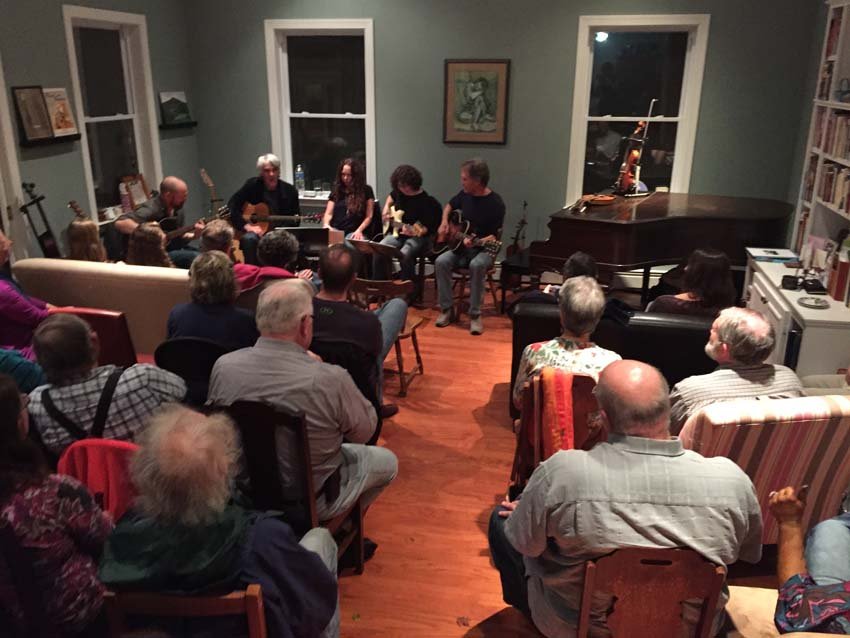
The opportunity to interact with the musicians appeals to another house concert organizer, Brad Segree, who has held about 10 events over the past few years. He started hosting as a low-key, pandemic-safe alternative to concerts at public venues, giving himself and his fellow music fans a chance to enjoy an activity that they dearly missed. “Bringing the live music scene into my home and into my neighborhood, and bringing people together to hear—it’s fantastic,” he says. “I’ve been very lucky with some of the talent that’s already come and played at my house. One of the things I love about doing these shows is getting to meet these musicians before the crowd shows up.”
So far, Segree has hosted his brother, Annapolis’ own Doug Segree, along with other local bands and artists, including Pressing Strings, Skribe, and Sweet Leda. Most of the time, he has smaller, more intimate “listening concerts” indoors with acoustic artists, but he recently started holding events outside, in collaboration with his neighbor Elliot Nudell, so they can have full bands and a bigger crowd. One such concert brought Swamp Donkey to their backyard space, where about 50 people gathered on a cool September night to hear some newgrass rock and enjoy the sense of camaraderie that live music encourages.
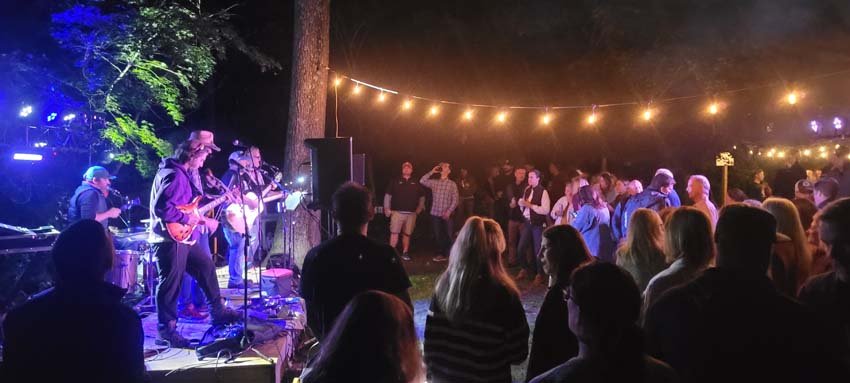
Another organizer, Gale Morse, specializes in similar outdoor concerts, welcoming people to her large backyard, where she has lights strung up, a firepit blazing, and plenty of room for the audience to dance. She started up the gatherings in spring 2020, after seeing a viral online video of neighbors dancing in the street to the sound of amplified music and was inspired to create a similar experience. With an emphasis on pandemic safety, Morse began with a 10-person limit—all participants masked, coming to her yard to hear and dance to the music—which then grew. Thus began a tradition that happened weekly from June to November. “My friends were so thirsty for live music,” she says. “Musicians were calling me up and saying they wanted to come play. People were dropping $100 in the tip jar because they were grateful to have this.”
That spirit of gratitude and generosity appears consistently at every house concert. Organizers agree that they’re able to make these events possible because everyone who comes is willing to pitch in and help cover a stipend for the performing artists. Segree says that not having to collect a cover charge is part of what makes hosting so easy for him. “My philosophy is I want to enjoy the music and enjoy the show—I spend time setting up the event, and once the music starts, I try not to work,” he says. “I’m counting on the attendees to donate so I don’t have to collect money. That would be a potential issue if nobody paid, but everyone is pitching in.”
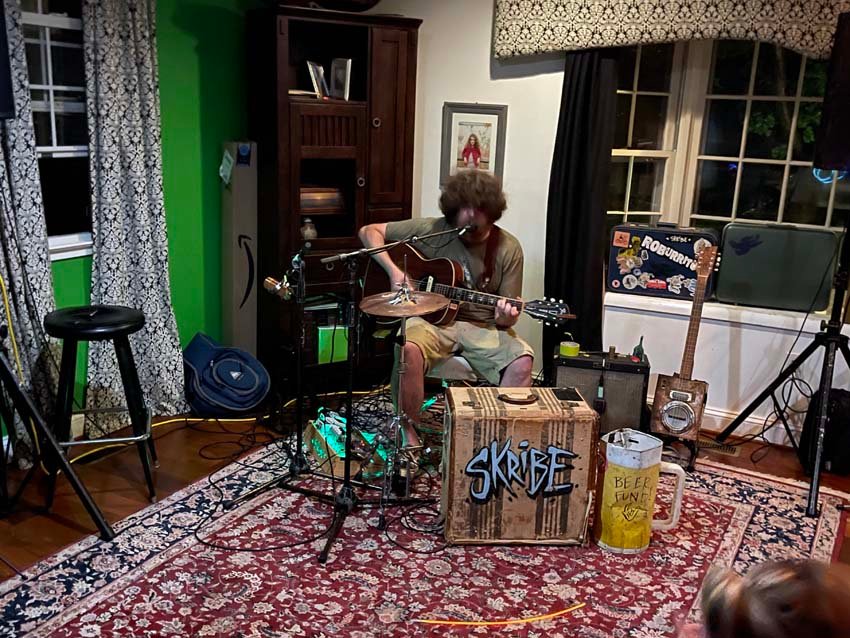
For the most part, the organizers agree there’s very little challenge in what they do. Their guests show appreciation and respect, and there’s often little need for crowd control—or even publicizing, for that matter. The Callaghans agree that setup and moving furniture is often harder than hosting itself. “Sometimes we have a musician who isn’t investing in publicizing their own show, but we have an email list we send it out to,” says Michele. “I like a lot of people, but a couple of times, it’s been crowded, and I have to leave the room. It’s a rare occasion when we get that many people.”
While Morse is in a similar situation, with very little need to publicize beyond a few online announcements, she wouldn’t mind welcoming a few more young people. Most of her regulars are friends of hers from what’s known as “Hippie Happy Hour,” a combination of live music and drinks that regularly occurs at 49 West Coffeehouse, Winebar & Gallery. “We’re all 55 and older,” she says. “We would love to have a little more age differentiation.”
As in-person gatherings become safer and more commonplace, the organizers look forward to the new possibilities when it comes to live music. They’re excited to welcome more people to their homes. “Annapolis has so much musical talent; it’s absolutely stunning,” says Morse. “It’s a real community of people. It’s pretty special.” █
